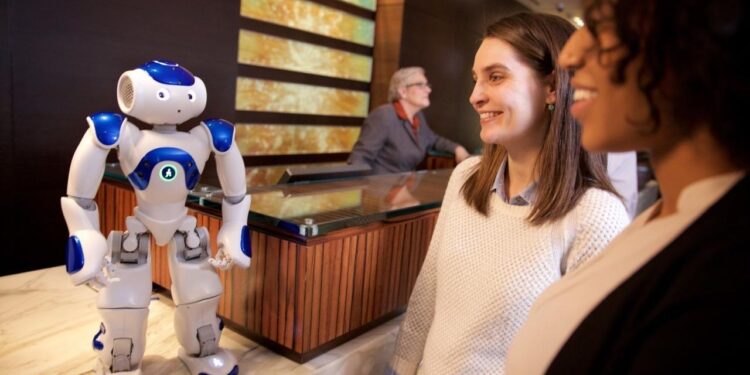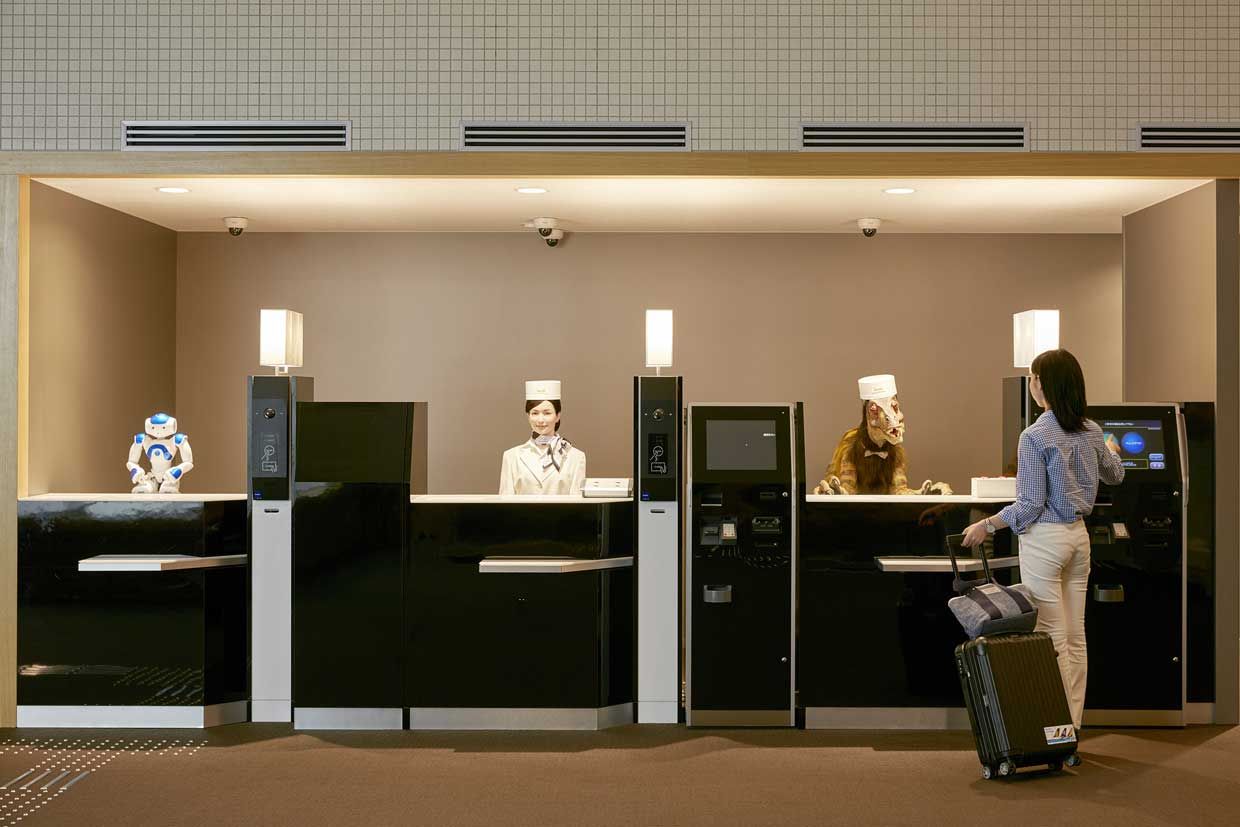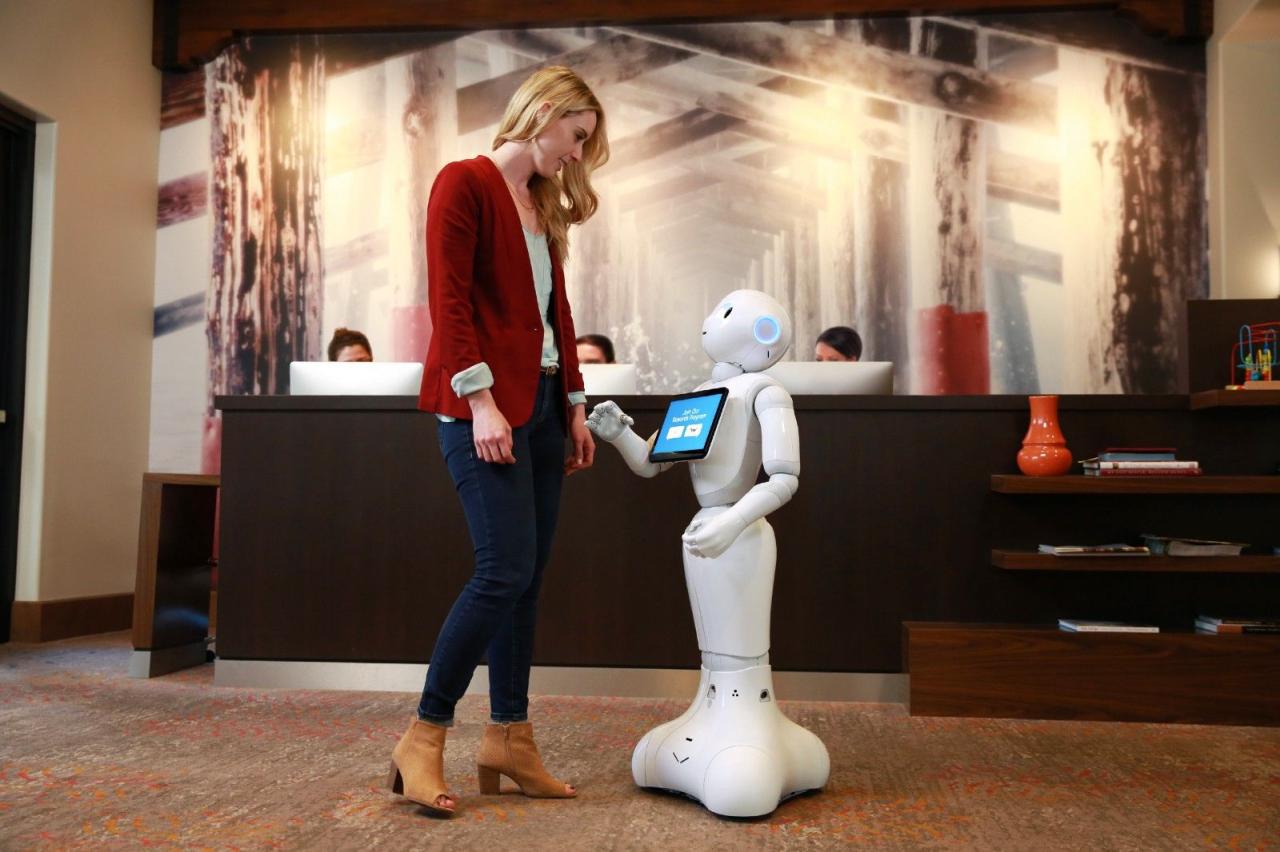AI Revolutionizes Hotel Guest Services
The landscape of hotel guest services is undergoing a profound and rapid transformation, driven primarily by the increasingly sophisticated integration of Artificial Intelligence (AI). What once relied solely on human interaction and manual processes is now being augmented, and in some cases, redefined by intelligent systems designed to enhance efficiency, personalize experiences, and anticipate guest needs with unprecedented precision. This comprehensive exploration will delve into the multifaceted ways AI is currently revolutionizing guest services within the hospitality industry, examining the innovative applications, the tangible benefits for both guests and hoteliers, and the exciting future implications of this technological evolution. We will dissect how AI is elevating every touchpoint, from initial booking to post-stay engagement, ultimately redefining what it means to deliver truly exceptional hospitality in the modern era.
Why AI in Hospitality Matters
For centuries, hospitality has been synonymous with the human touch – a friendly face at the front desk, a concierge’s expert recommendation, a waiter’s attentive service. While the warmth of human interaction remains a cornerstone, the demands of the modern traveler have evolved significantly. Guests now expect seamless efficiency, hyper-personalization, instant gratification, and services that are available 24/7, regardless of time zones or language barriers. This is where AI steps in as a powerful enabler, bridging the gap between traditional service models and contemporary expectations.
A. Meeting Elevated Guest Expectations
Today’s travelers, particularly those from digitally native generations, carry with them a set of expectations forged in the world of e-commerce and instant communication. They are accustomed to:
- Instant Responses: No one wants to wait on hold or for an email reply when they have a simple question about check-in times or Wi-Fi passwords. AI-powered chatbots and virtual assistants provide immediate, accurate answers.
- Personalized Experiences: Guests expect businesses to remember their preferences, anticipate their needs, and offer tailored recommendations. AI analyzes data to deliver this level of individualization.
- Seamless Digital Journeys: From online booking to mobile check-in and keyless entry, travelers prefer digital convenience that mirrors their everyday interactions with technology. AI underpins many of these automated processes.
- Self-Service Options: Many guests prefer the autonomy of finding information or performing tasks themselves without needing to interact with staff, especially for routine inquiries. AI facilitates robust self-service portals.
B. Enhancing Operational Efficiency for Hoteliers
Beyond guest satisfaction, AI offers substantial benefits for hotel operations, directly impacting profitability and staff productivity:
- Reduced Labor Costs: Automating routine tasks such as answering FAQs, processing basic requests, or managing digital check-ins frees up human staff to focus on more complex, value-added interactions.
- Increased Productivity: AI tools can handle a high volume of inquiries simultaneously, eliminating bottlenecks and ensuring that no guest request goes unanswered, even during peak times or off-hours.
- Data-Driven Decision Making: AI systems collect and analyze vast amounts of guest data, providing invaluable insights into preferences, common issues, and service gaps, enabling hoteliers to make informed strategic decisions.
- Optimized Resource Allocation: By predicting demand for certain services or amenities, AI can help hotels allocate staff and resources more effectively, reducing waste and improving service delivery.
C. Gaining a Competitive Edge
In an increasingly crowded and competitive hospitality market, hotels that leverage AI effectively can differentiate themselves significantly:
- Superior Guest Experience: Hotels offering AI-enhanced services stand out as innovative and customer-centric, leading to higher guest satisfaction scores, repeat bookings, and positive online reviews.
- Brand Modernization: Adopting AI signals a forward-thinking approach, appealing to a tech-savvy demographic and enhancing the hotel’s brand image as a modern, efficient, and responsive establishment.
- Targeted Marketing and Upselling: AI’s ability to understand guest preferences allows for highly targeted marketing campaigns and personalized upsell opportunities (e.g., suggesting a room upgrade with preferred amenities), driving additional revenue.
Key AI Applications Revolutionizing Guest Services
The integration of AI into hotel guest services is broad and ever-expanding, touching nearly every aspect of the guest journey. These applications are designed not to replace human interaction entirely, but rather to augment it, allowing staff to focus on more complex problem-solving and personalized engagement.
A. AI-Powered Virtual Assistants and Chatbots
These are perhaps the most visible and widely adopted AI applications in hospitality. Chatbots and virtual assistants provide instant, 24/7 support across various platforms, including hotel websites, messaging apps (WhatsApp, Facebook Messenger), and in-room voice assistants.
- Instant Information Retrieval: Guests can ask questions about hotel amenities, restaurant hours, pool access, Wi-Fi details, local attractions, and more, receiving immediate and accurate answers.
- Basic Task Automation: Chatbots can handle simple requests like booking airport transfers, ordering extra towels, scheduling wake-up calls, or even making basic restaurant reservations within the hotel.
- Multilingual Support: AI can communicate in multiple languages, breaking down communication barriers and providing a seamless experience for international travelers.
- Personalized Recommendations: Based on guest profiles and past interactions, virtual assistants can suggest activities, dining options, or local experiences tailored to individual preferences.
- Pre-Arrival and Post-Departure Engagement: Chatbots can send personalized welcome messages, provide check-in instructions, collect feedback after check-out, and even offer promotions for future stays.
B. Personalized Guest Experience Platforms
AI excels at processing and analyzing vast datasets to create highly individualized guest experiences. These platforms leverage machine learning algorithms to understand preferences, predict needs, and offer tailored services.
- Personalized Room Preferences: AI can remember a guest’s preferred pillow type, room temperature, minibar selections, or even preferred view, ensuring these are set up prior to arrival.
- Tailored Recommendations: Based on past stays, booking history, and even social media activity (with consent), AI can suggest local restaurants, specific spa treatments, nearby attractions, or hotel events that align with individual interests.
- Dynamic Pricing and Promotions: AI algorithms can analyze market demand, competitor pricing, and individual guest profiles to offer personalized room rates or packages, maximizing revenue while providing perceived value.
- Content Curation: For in-room entertainment systems or hotel apps, AI can curate content (movies, music, local guides) based on a guest’s viewing history or expressed interests.
C. Predictive Analytics for Proactive Service
One of AI’s most powerful capabilities is its ability to analyze patterns and predict future outcomes. In hospitality, this translates into truly proactive service.
- Anticipating Guest Needs: By analyzing guest behavior (e.g., frequent requests for a specific item, or a history of early check-ins), AI can prompt staff to proactively offer services before a guest even has to ask. For instance, if a guest frequently requests extra towels, they might be placed in the room before arrival.
- Staffing Optimization: AI can predict peak times for check-ins, check-outs, or restaurant rushes, allowing hotel management to optimize staff scheduling, ensuring adequate coverage and reducing wait times.
- Maintenance and Housekeeping Prioritization: AI can identify patterns in equipment malfunctions or predict which rooms will require more intensive cleaning based on previous guest profiles, leading to more efficient maintenance schedules and housekeeping routines.
- Sentiment Analysis: AI can monitor online reviews, social media mentions, and direct guest feedback (e.g., through surveys or chatbot conversations) to gauge sentiment in real-time. This allows hotels to quickly identify and address potential issues before they escalate, turning negative experiences into opportunities for service recovery.
D. Automated Check-in and Keyless Entry Systems
While not purely AI-driven, AI enhances the intelligence and personalization of these automated systems, which are increasingly expected by guests seeking efficiency and convenience.
- Facial Recognition Check-in: Guests can bypass the front desk entirely by using pre-registered facial scans to check in, receive their room number, and activate their digital key.
- Mobile Key Technology: Guests can use their smartphones as digital room keys, eliminating the need for physical key cards and simplifying the arrival process. AI can ensure these digital keys are personalized and securely provisioned.
- Automated Kiosks: Self-service kiosks, often powered by AI for intuitive navigation and personalized prompts, allow guests to check in, select room preferences, and even make minor requests without human intervention.
E. AI in Hotel Operations and Back-End Support
While not directly guest-facing, AI in back-end operations significantly impacts guest service quality by improving efficiency and decision-making.
- Revenue Management Systems: AI algorithms analyze vast amounts of data (historical booking patterns, competitor pricing, local events, weather forecasts) to dynamically adjust room rates in real-time, optimizing occupancy and average daily rate (ADR). This indirectly benefits guests by offering competitive pricing.
- Housekeeping Optimization: AI can create optimized cleaning schedules based on check-out times, guest preferences (e.g., “do not disturb” times), and projected check-ins, ensuring rooms are ready efficiently.
- Energy Management Systems: AI can monitor and optimize energy consumption within the hotel, adjusting lighting, heating, and air conditioning based on occupancy, time of day, and external weather conditions, reducing operational costs and supporting sustainability goals, which is increasingly important to guests.
- Security and Surveillance: AI-powered facial recognition and anomaly detection can enhance hotel security, identifying suspicious activities or unauthorized persons, thereby ensuring a safer environment for guests.
The Synergy of AI and Human Interaction: The Future of Hospitality
It’s crucial to understand that AI in hospitality is not about replacing human staff but about creating a powerful synergy. AI handles the routine, repetitive, and data-intensive tasks, thereby empowering human staff to focus on what they do best: providing genuine empathy, engaging in complex problem-solving, and delivering truly personalized, memorable experiences that only a human can offer.
A. Empowering Front-Line Staff
By offloading mundane tasks, AI frees up hotel employees to:
- Focus on High-Value Interactions: Instead of processing check-ins, front desk staff can engage guests in meaningful conversations, offer personalized recommendations for local experiences, or address more complex requests.
- Elevate Service Recovery: When issues arise, AI can quickly flag them, allowing human staff to intervene promptly and effectively, turning a potential negative experience into a positive one through genuine care and swift resolution.
- Enhance Local Expertise: With more time on their hands, staff can dedicate themselves to becoming true local experts, offering unique insights and recommendations that AI cannot replicate.
B. Creating Authentic Connections
While AI can personalize recommendations, it cannot replicate the warmth of human connection. The future of luxury hospitality lies in blending the efficiency of AI with the irreplaceable human touch.
- Empathetic Problem Solving: AI can identify a problem, but a human can understand the nuance of a guest’s frustration and offer truly empathetic solutions.
- Genuine Relationship Building: Returning guests often appreciate being recognized and remembered by name by staff members, fostering a sense of belonging and loyalty that AI cannot fully replicate.
- Cultural Nuance and Emotional Intelligence: AI struggles with understanding subtle cultural cues, sarcasm, or complex emotional states. Human staff excel in these areas, ensuring interactions are always appropriate and sensitive.
Challenges and Considerations for AI Adoption
Despite the immense promise, integrating AI into hotel guest services is not without its challenges. Hoteliers must carefully consider these factors to ensure successful and ethical implementation.
A. Data Privacy and Security Concerns
AI systems rely heavily on guest data to function effectively. Protecting this sensitive information is paramount.
- GDPR and Local Regulations: Hotels must ensure compliance with stringent data privacy regulations like GDPR (General Data Protection Regulation) and other local laws concerning personal data collection and usage.
- Cybersecurity Risks: AI systems, like any digital platform, are susceptible to cyberattacks. Robust cybersecurity measures are essential to prevent data breaches and protect guest information.
- Transparency with Guests: Hotels must be transparent about what data is being collected, how it’s being used, and how it’s being protected. Guests should have clear options for opting in or out of data collection.
B. Integration Complexity and Cost
Implementing advanced AI solutions often requires significant investment and complex integration with existing legacy systems.
- Initial Investment: The cost of AI software, hardware, and integration services can be substantial, making it a significant financial commitment for hotels.
- System Compatibility: Integrating new AI platforms with Property Management Systems (PMS), Customer Relationship Management (CRM) systems, and other operational software can be technically challenging.
- Training and Adoption: Hotel staff require comprehensive training to effectively utilize and manage AI tools, ensuring they complement rather than complicate existing workflows.
C. Maintaining the Human Touch and Avoiding Dehumanization
A critical concern is ensuring that AI enhancements do not lead to a dehumanized or impersonal guest experience.
- Balancing Automation with Human Interaction: Hotels must strike the right balance, knowing when to automate and when a human touch is indispensable. Over-automation can lead to guest frustration.
- Personalization vs. Creepiness: While guests appreciate personalization, there’s a fine line between helpful anticipation and intrusive surveillance. AI deployment must be handled with sensitivity to avoid making guests feel monitored.
- Addressing Complex Issues: For emotionally charged situations or highly complex problems, human intervention is almost always necessary. AI should escalate these issues to staff efficiently.
D. The Evolving Landscape of AI Technology
AI is a rapidly evolving field, meaning hotels must be prepared for continuous updates, adaptations, and ongoing investment to stay current.
- Rapid Obsolescence: AI technologies can evolve quickly, potentially making earlier investments outdated if not planned for future upgrades.
- Staying Ahead of the Curve: Hoteliers need to dedicate resources to research and development or partner with innovative tech companies to ensure their AI solutions remain cutting-edge.
The Horizon: What’s Next for AI in Hotel Guest Services?
The current applications of AI are just the beginning. The future promises even more sophisticated and integrated AI solutions that will further blur the lines between convenience and personalized luxury.
A. Hyper-Realistic AI Concierges and Avatars
Advancements in natural language processing (NLP) and generative AI could lead to virtual concierges that not only sound human but also appear as realistic avatars on screens, offering an even more intuitive and engaging interaction. These avatars could learn and adapt to individual guest personalities and preferences over time, offering truly dynamic and highly personalized conversations.
B. AI-Powered Smart Room
Imagine hotel rooms that proactively adapt to guest preferences. AI could learn preferred lighting levels, temperature settings, music choices, and even display personalized digital art. Voice commands could control every aspect of the room, from ordering room service to drawing the curtains, making the room an intuitively responsive environment.
C. Enhanced Predictive Maintenance with IoT Integration
Combined with the Internet of Things (IoT) sensors embedded throughout the hotel, AI will become even more adept at predictive maintenance. It could detect minor issues in plumbing, HVAC, or electrical systems before they become major problems, allowing for proactive repairs that prevent guest discomfort or service disruptions. This would minimize “down time” for rooms and maximize guest satisfaction.
D. Immersive AI-Generated Experiences
AI could create highly personalized, immersive experiences within the hotel itself. For instance, a guest interested in art history could have their room transformed with AI-generated art installations or be guided through a virtual museum tour curated specifically for them, all without leaving the comfort of their suite.
E. AI for Sustainable Operations and Guest Engagement
Beyond optimizing energy, AI could monitor and advise guests on their environmental footprint during their stay, suggesting ways to conserve water or energy, or even participate in local sustainability initiatives supported by the hotel. This would appeal to the growing segment of eco-conscious luxury travelers.
Conclusion
The integration of Artificial Intelligence into hotel guest services is not merely a technological trend; it is a fundamental evolution reshaping the very fabric of the hospitality industry. By automating routine tasks, providing instant information, enabling deep personalization, and offering proactive solutions, AI is empowering hotels to meet and exceed the ever-increasing expectations of modern travelers.
While the efficiency and data-driven insights offered by AI are invaluable, the ultimate success lies in its ability to augment, rather than replace, the irreplaceable human element. The future of luxury hospitality is a harmonious blend of cutting-edge technology and genuine human connection – a symbiosis where AI handles the complex calculations and mundane tasks, freeing up human staff to provide the warmth, empathy, and personal touch that transform a mere stay into a truly unforgettable experience. Hotels that master this delicate balance will not only thrive in the competitive landscape but will also set new benchmarks for what exceptional guest service truly means in the AI age. The journey for a smarter, more seamless, and profoundly personalized stay has only just begun.










